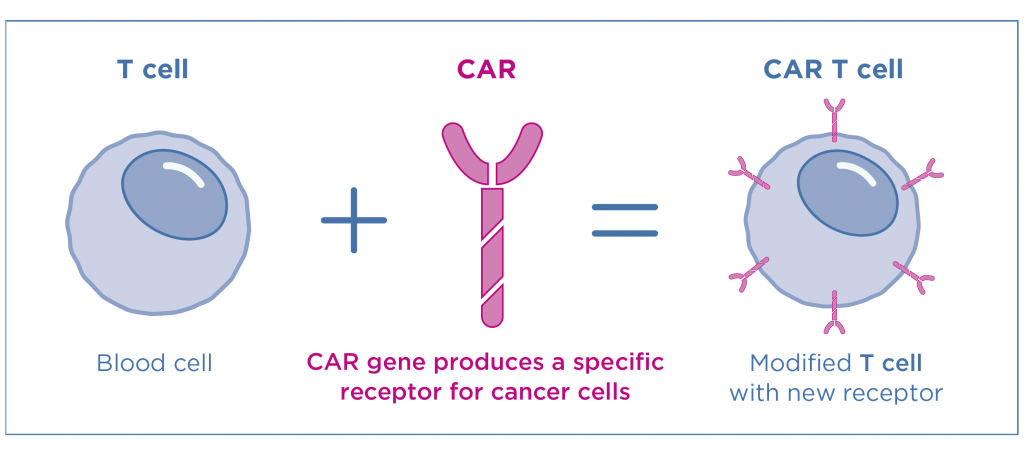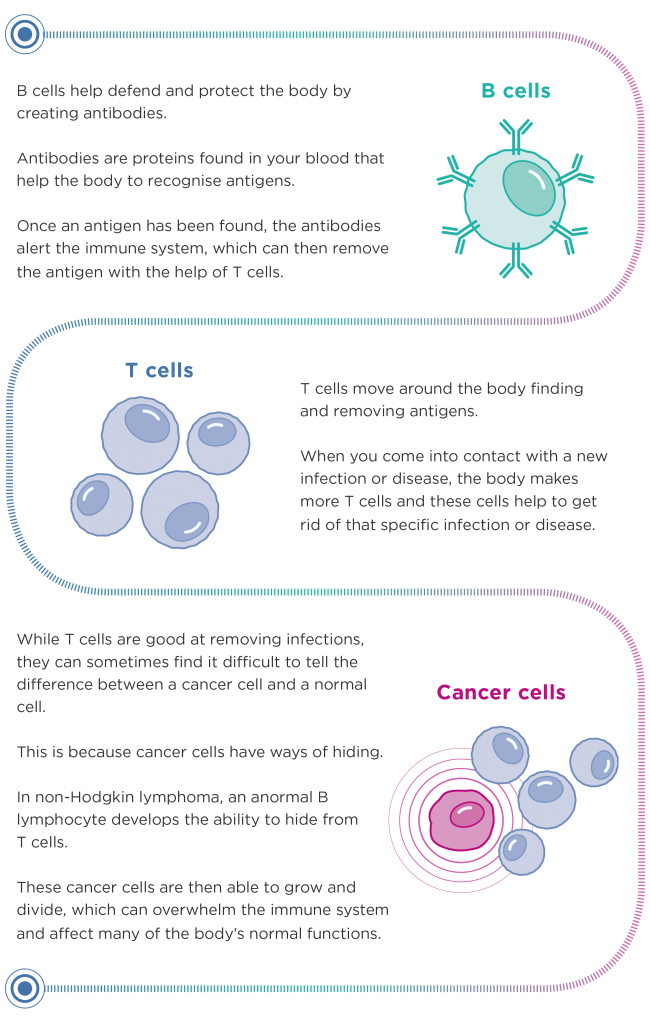Understanding your treatment
CAR T cell therapy is a type of immunotherapy, which means it uses your own immune system to target your cancer.
To produce CAR T, a sample of your T cells are collected from your blood through a process called apheresis and sent to a manufacturing facility. Here they will be genetically engineered by inserting a gene for a chimeric antigen receptor (CAR), turning them into CAR T cells.
It is the addition of this gene that may help your own T cells to recognise and attack your cancer.

After the CAR T cells have been grown and multiplied in a laboratory, they are infused through IV (intravenous therapy) into your bloodstream.
These cells may now be able to fight your cancer by binding to cancer cells and releasing chemicals to destroy them. This type of treatment is known as CAR T cell therapy.
Understanding your immune system
To understand how the treatment works, it may help to understand a bit more about how the immune system works.
The immune system is the body’s defence against infections and diseases, including cancer. When the body senses abnormal cells or infections – known as antigens – the immune system works to find and remove them. Antigens are proteins that are found on their surface that are recognised by the body as being foreign.
There are many different parts to the immune system. One part is the lymphocytes, which are a kind of white blood cell. Lymphocytes play a central role in the immune system, because they help to recognise and remove antigens. There are two types of lymphocytes: B cells and T cells.
